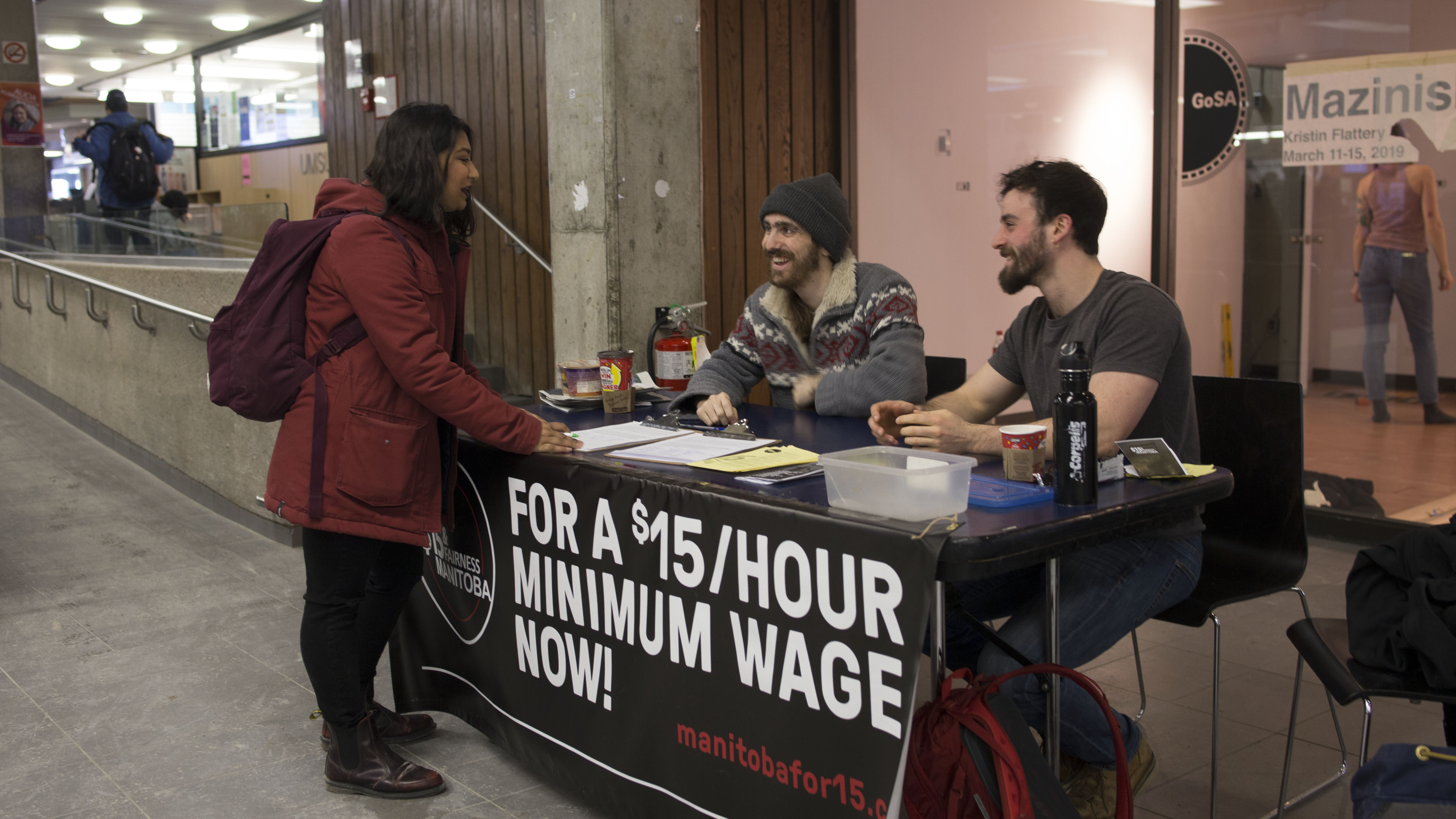Working students who feel unfairly treated by their workplaces were met with an empowering message in UMSU University Centre this week: they are not alone.
The Fight for $15 and Fairness Manitoba U of M chapter tabled on campus March 5 and 8 to collect signatures on a petition calling for the province to increase the minimum wage to $15 an hour.
The current minimum wage in Manitoba is $11.35 an hour, increased in October from $11.15. The Canadian Centre for Policy Alternatives calculated the living wage in Winnipeg for 2016-17, or the wage a family with two parents working full-time must make to meet their basic needs, to be $14.54 an hour.
The group is part of a larger movement across the U.S. and Canada. Along with pushing for increasing the minimum wage, advocates also call for improved employment standards and stronger benefits for low-wage workers.
Freelance journalist and Fight for $15 and Fairness U of M chapter organizer James Wilt was on campus collecting signatures and speaking with students.
“We’re trying to engage with students because this is something that impacts lots of students,” he said.
“And I think a lot of people have experienced working minimum-wage or low-wage jobs, and so we’re just trying to get the word out there and increase support for it.”
Wilt said the goal of the campaign is not to necessarily appeal to the government, but to demand changes to labour laws in a more direct way.
“There’s the upcoming provincial election, and the Manitoba PCs are obviously in power, and not very sympathetic to the idea of a higher minimum wage,” he said.
“But that’s why we see the sort of grassroots nature of this campaign being formed by students and low-wage workers [as being] really powerful, because the objective is not to appeal to a benevolent government that will gift us this, it’s really to fight for it.”
Wilt called the response from U of M students “amazing.”
“It’s been great, it’s been really good. We’ve had people who will come and sign, and then they will call their friends over, or tell their friends and then they’ll come.”
Wilt, who said he joined the group because of his own experiences with minimum wage jobs, called it “near impossible” to work full-time in a minimum wage position and maintain a fair quality of life — and said the Fight for $15 campaign has heard testimonies from working students who say the same.
“We’ve had people tell us stories about working low wage jobs, and how it’s just so difficult to juggle that and having to pay rising tuition costs and all that kind of thing, and rising housing costs,” he said.
“I think it’s been really good. We have conversations with people who might be skeptical or have questions about it, which is good, so it’s an opportunity to answer some of those questions about alleged impacts on jobs or inflation or that kind of thing and to help dispel myths and everything.”



